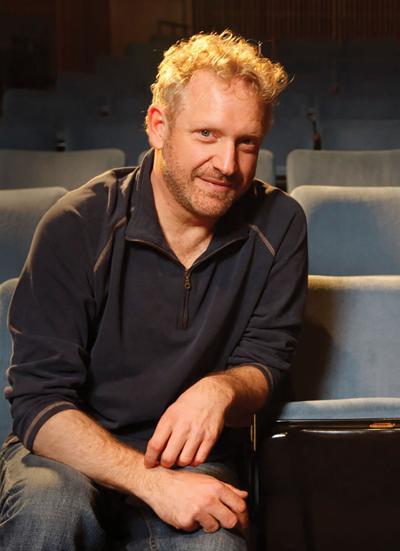
The poet W.H. Auden once remarked that “the way to read a fairy tale is to throw yourself in.” Nashville composer Michael Kurek believes the same rule applies when listening to his new Symphony No. 2 “Tales From the Realm of Faerie.”
“As you might expect from a large-scale work, there’s a lot going on in my Second Symphony,” Kurek tells the Scene. “But I don’t think listeners should concern themselves with technical details. They simply need to lose themselves in the sensuousness of the music, the way a reader is swept up in the narrative of a Tolkien fantasy.”
Classical music lovers will have plenty of time to surrender to Kurek’s enchanting melodies. In October, the European Recording Orchestra released a new album on the Navona label featuring Kurek’s Second Symphony. The work is conducted by longtime Vanderbilt University professor Robin Fountain. Also on the album, the Vanderbilt Chorale under the direction of Tucker Biddlecombe performs the composer’s newly completed Missa Brevis.
For Kurek, a Nashville native, the new album caps a memorable year in classical music that began with Gov. Bill Lee signing legislation naming him Composer Laureate of the State of Tennessee. Kurek is only the second musician in Tennessee history to hold this post. David Van Vactor, a former Knoxville Symphony conductor who once taught Kurek, became the state’s inaugural Composer Laureate in 1975.
The honor recognizes Kurek’s significant contribution to classical music in the Volunteer State, most notably the 14 years he served as chair of the composition department at Vanderbilt University’s Blair School of Music. Kurek left Vanderbilt in 2020 to devote all of his energy to composing, an endeavor that has brought him international acclaim.
Over the years, his works have been performed by major ensembles in 43 countries, and the success of his performances has not gone unnoticed. He has received awards and recognitions from BMI, the American Symphony Orchestra League, the National Endowment for the Arts, and the American Academy of Arts and Letters, among many others.
Honors aside, Kurek seems most proud of his commercial success, an accomplishment seldom associated with contemporary classical music. His 2017 album The Sea Knows debuted at No. 1 on the Billboard Traditional Classical chart. Remarkably, music from the album enjoyed more than 330,000 streams on Spotify. Kurek fans, by the way, weren’t streaming three-minute songs, but rather 20-minute-plus classical works.
The popularity of Kurek’s music no doubt stems from its accessibility. An unabashed neo-Romantic, Kurek writes the sort of traditional, melodic and tonal music associated with such 20th-century symphonists as Sibelius, Prokofiev, Vaughan Williams and Rachmaninoff. Indeed, if Kurek manages to create another two or three large-scale symphonies, one could easily imagine him assuming the mantle of an American Vaughan Williams.
Kurek’s Symphony No. 2 certainly exhibits a broad, Vaughan Williams-like range of emotions, from passion and exuberance to tranquility and melancholy. In his program notes for the symphony, Kurek again encourages his listeners to lose themselves in the music, “as would a child hearing fairy tales being read aloud.” It’s not difficult to follow his advice. As the composer writes, his symphony is generously decorated with “swashbuckling fanfares, love themes and pointillist fairy dust.” One couldn’t hope for a more cinematic piece.
“I hope my symphony awakens some sensibility, some enchantment, that’s been sleeping inside of us since childhood. Put another way, I hope this symphony strikes a chord.”
Talking with rising roots star Sierra Ferrell, counting down the year’s top Nashville albums and more






